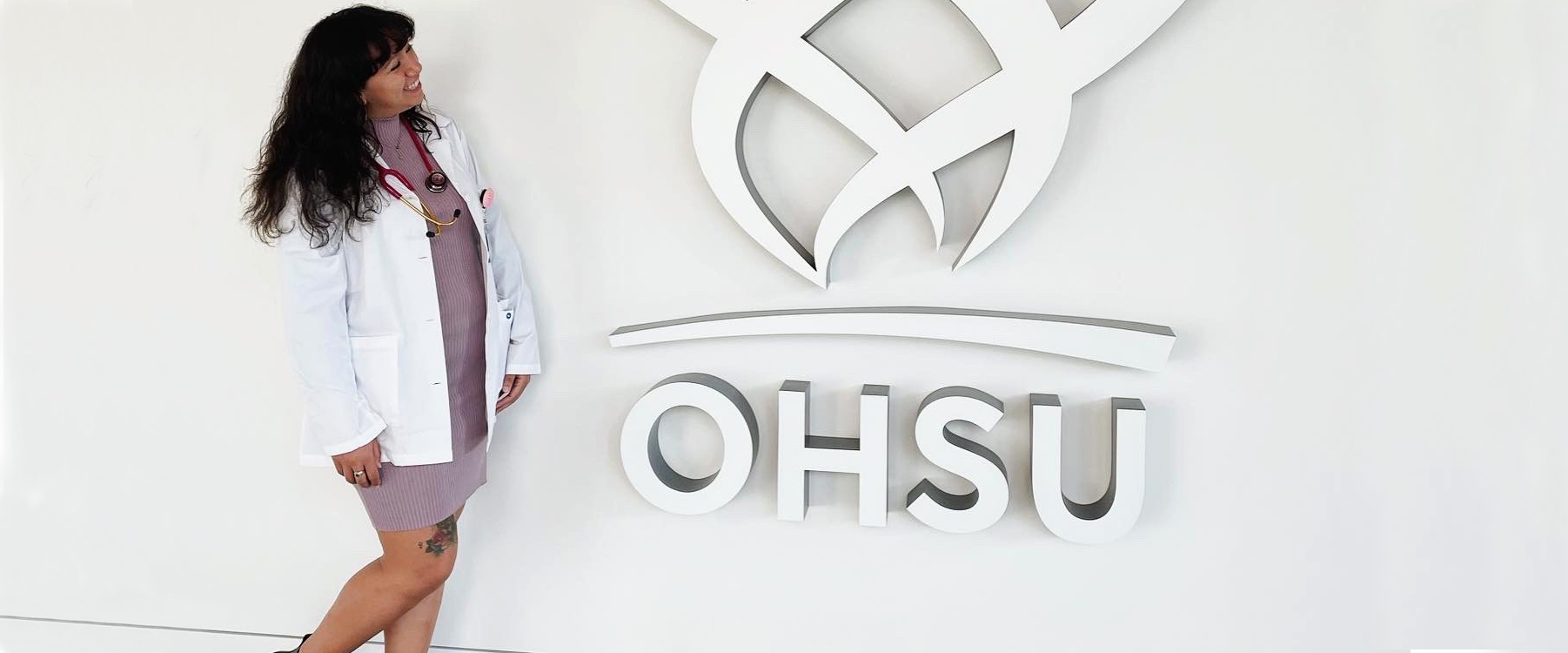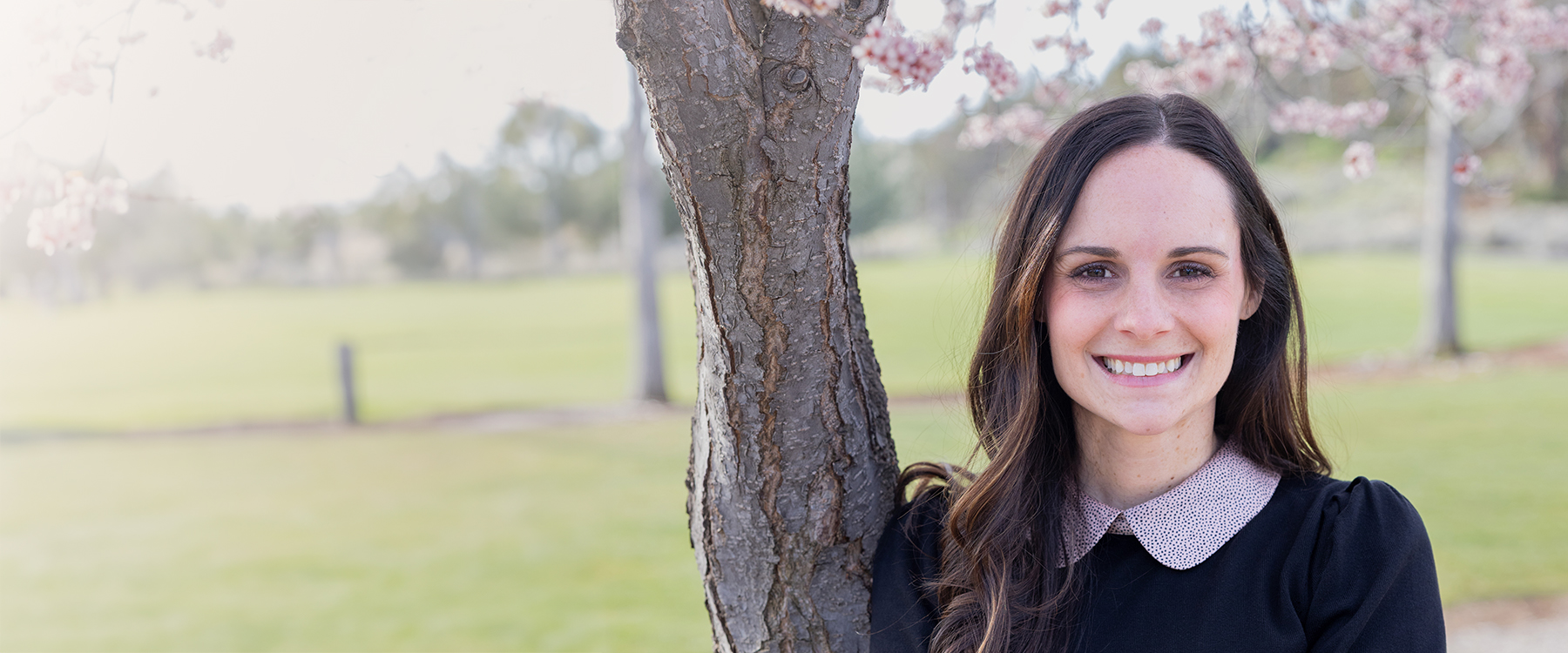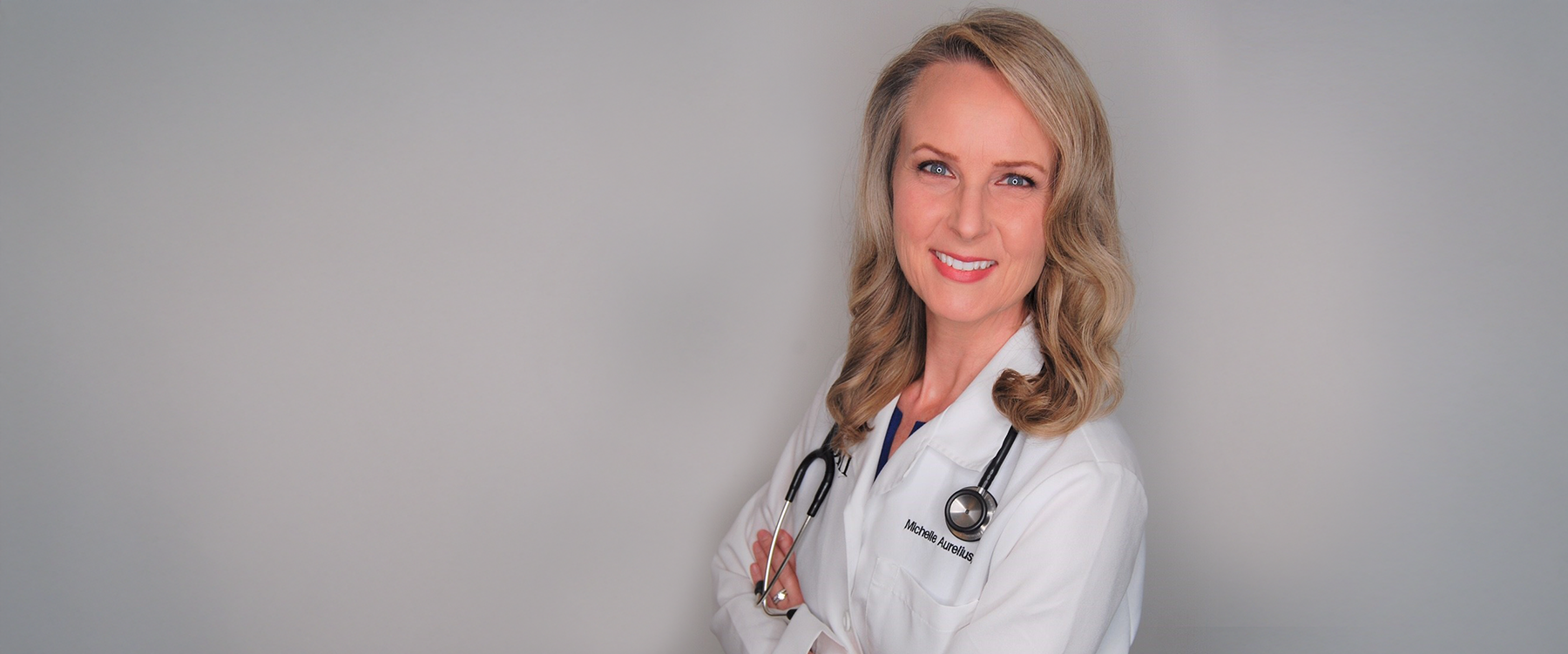Equipped with an undergraduate degree in integrative biology from UC Berkeley, a post-baccalaureate certificate in pre-professional health from California State, East Bay, and three years’ experience as a reproductive health specialist at Planned Parenthood, Lillya Roldan, M.D. Class of 2024, already boasted an impressive resume.
But she wanted something more: medical school. Roldan knew she wanted to be at an institution that aligned with the values instilled by her educational journey up to that point. She wanted to go somewhere that taught and advocated for reproductive health, somewhere that aimed to increase inclusivity and access to care.
It didn’t take Roldan long to find that the OHSU School of Medicine was a perfect match.
Now, Roldan, a third-year medical student, is on the path where she can be a passionate advocate for reproductive justice and autonomy.
In this audio story, Roldan discusses how the experience at Planned Parenthood shaped her principles today and how OHSU reflects her passion for advancing reproductive health care for all.
Transcript
“I wanted to make sure that I went to a school in a state that supported reproductive health and justice. I did a lot of my schooling in the Bay Area, and the Bay Area is a very open-minded space where it’s very inclusive, and I wanted something that kind of mirrored that. And I feel like Portland and OHSU in general are very similar in that regard. There’s good support. They care about diversity. And that I feel like I’m going to get a thorough, non-censored education. Those were things that mattered a lot to me.”
Lillya Roldan knew exactly what she wanted in a medical school. She valued reproductive justice, patient autonomy, access to care and inclusion, principles instilled during her experience as a reproductive health specialist at Planned Parenthood. So when she began mapping out the next chapter of her educational journey, she realized how closely OHSU’s ideals aligned with her own. Lillya is now a third-year medical student specializing in women’s health and obstetrics and gynecology, and she is following her passion for advancing reproductive health care for all.
“So, I’ve always kind of thought that I would potentially like either reproductive, OBGYN, pediatrics. So, when I was kind of looking for experiences as a pre-med applying to med school, I kind of stumbled upon an open position, basically, at Planned Parenthood. They were hiring for reproductive health specialists. And I immediately knew, I was like, ‘This is exactly the job I need to have before I go to med school.’ So I worked as a reproductive health specialist at Planned Parenthood for three years, and I loved it. It was amazing. I loved my patients. I loved my co-workers. I loved the environment. I loved what I was doing. And so that is kind of what cemented that idea that I’d always had that I liked reproductive health, and thinking that, ‘OK maybe I do want to go into OBGYN.’”
“I liked the versatility that comes with working in reproductive health. I liked that I could go from seeing a teenager who’s interested in starting birth control, to seeing a woman who just had a miscarriage, to seeing a woman who’s well into her pregnancy that looks like it’s going well, to doing a pap smear. Also, I think the main thing that I really liked was that when you’re working in reproductive health, it’s a setting in which you have to be vulnerable with people and people have to be vulnerable with you. It’s not just like, ‘Oh, how’s your breathing?’ No one really feels shy about telling you that they’re having trouble breathing. But when it comes to asking about a sexual history and things like that, it is a very vulnerable space, and you have to approach it in a very specific way so that your patients feel comfortable talking to you about that. And then just so many things come up when you’re talking about reproduction and sexual history — intimate partner violence comes up and assault histories come up. And it’s a space where you can really gain trust from somebody and feel like you’re really doing something for them. I feel like I got to bond with so many different patients, and I really loved that experience.”
“I wanted to make sure that I went to a school, A, in a state that supported reproductive health and justice and had laws that protected women’s autonomy and those things. And then just specifically a school that had a very inclusive outlook, where it’s just like we care holistically, we’re looking at our applicants holistically where you’re not just a test score; you are more than that. And that was important to me. There’s good support. They care about diversity. And that I feel like I’m going to get a thorough, non-censored education. Those were things that mattered a lot to me.”
“I guess to me, I feel like reproductive justice means, I mean I guess it comes down to one of the most fundamental things that we’re taught about medicine is that patient autonomy. Everyone has the right to decide what they want for their own bodies and their life, and specifically in the reproductive lens — if and when to choose to reproduce and to have a family like that and making sure that it is very much an individual decision, that they have the right to have the full spectrum of information whether to continue or to terminate. I think it’s just making sure that we as providers can give unbiased information — and all the information. And then just leaving it to the individual to know what it is to do with it that’s best for them. And even zooming out of specifically thinking about pregnancy — because I think reproductive justice is more than just that. I think it’s also inclusive of the LGBT community and the health care that they receive as far as STI testing goes and treatment and being non-biased as far as that goes, and being inclusive. “
“When Roe v. Wade was overturned, it was just so upsetting. I feel like we all needed to take a moment to just step back and vent and cry and rage and just be upset separate from being providers — you know just like as people, feel upset about it. And then be able to be like, ‘OK, now that I’m upset and I’ve had time to process that, what can we do practically moving forward?’”




